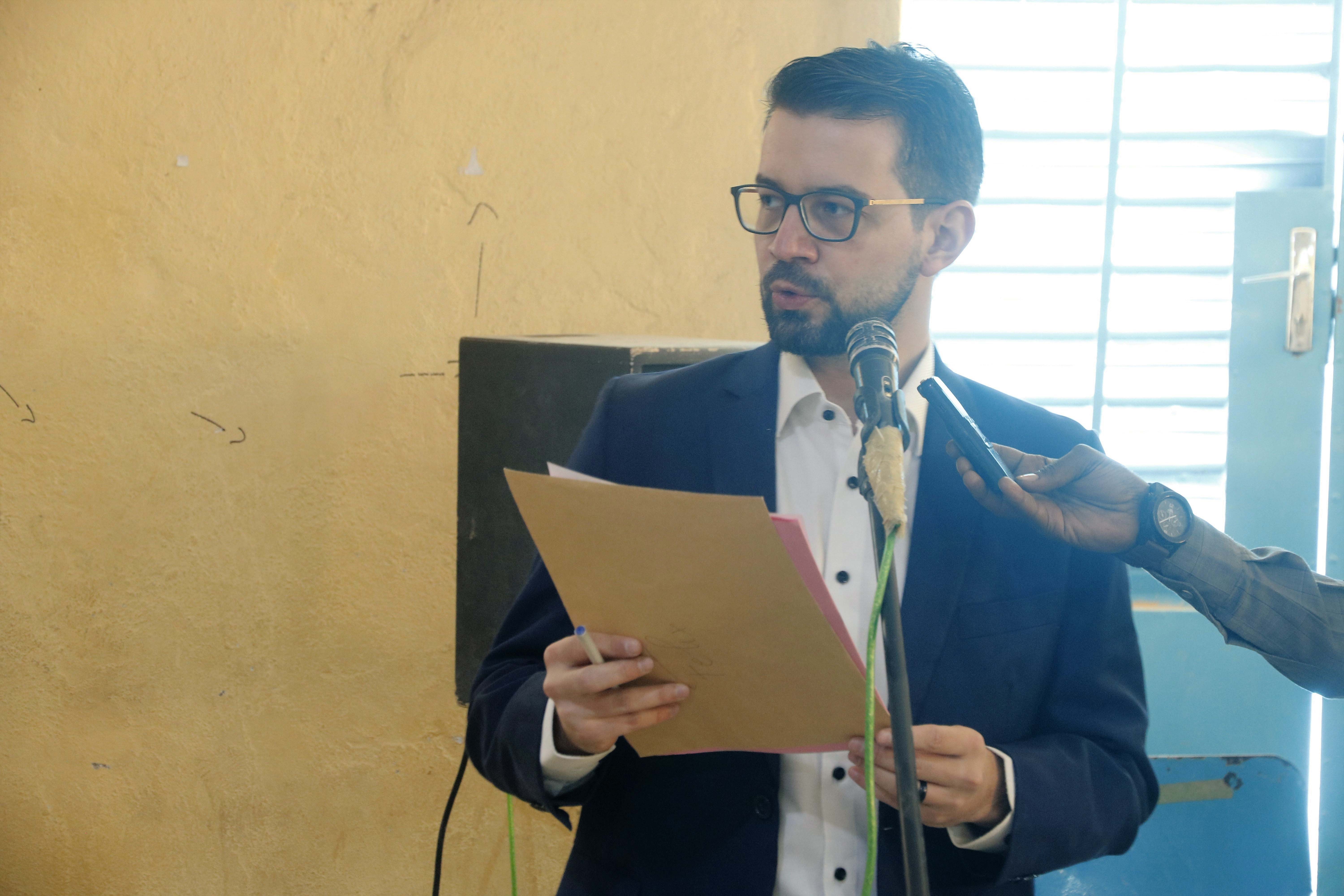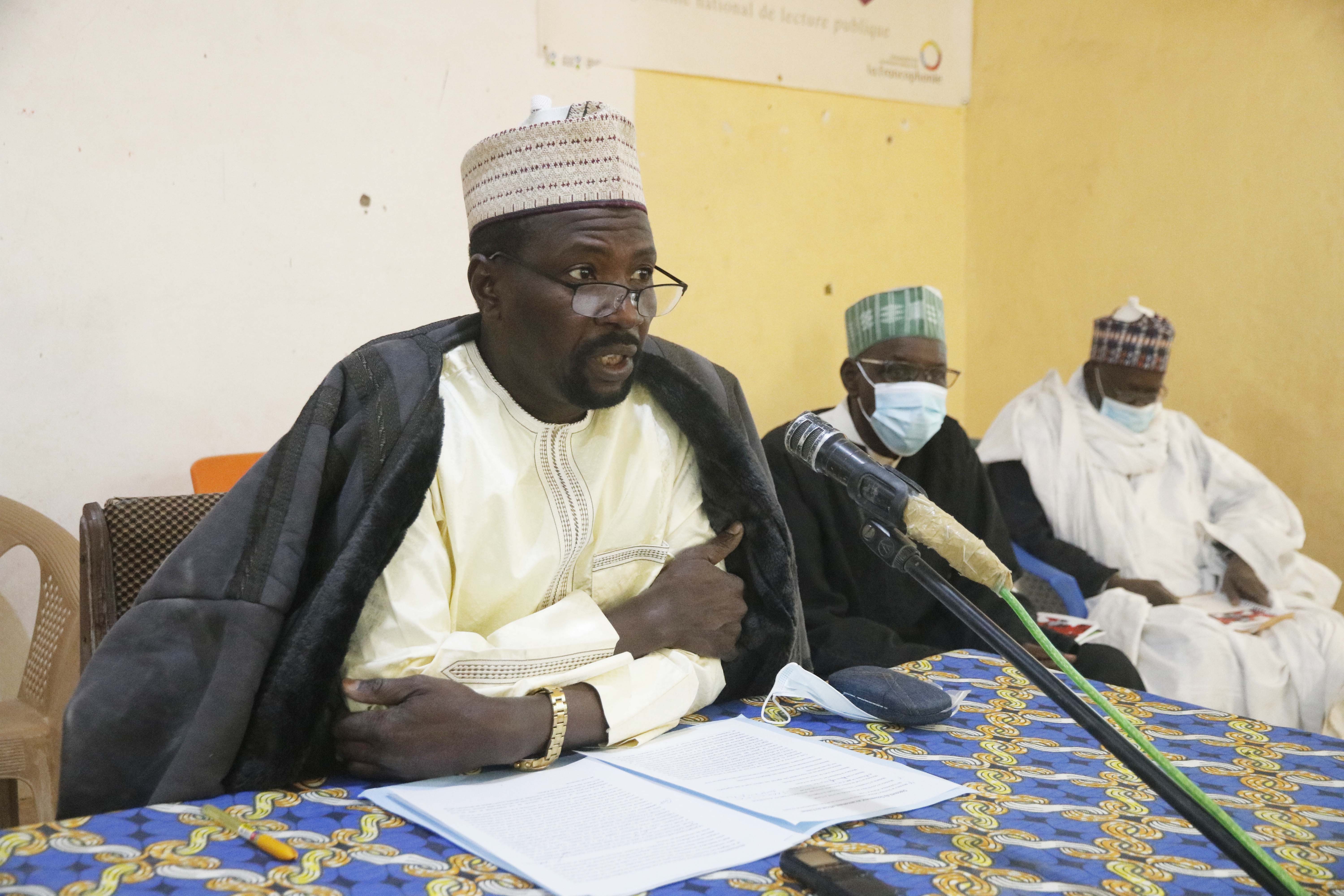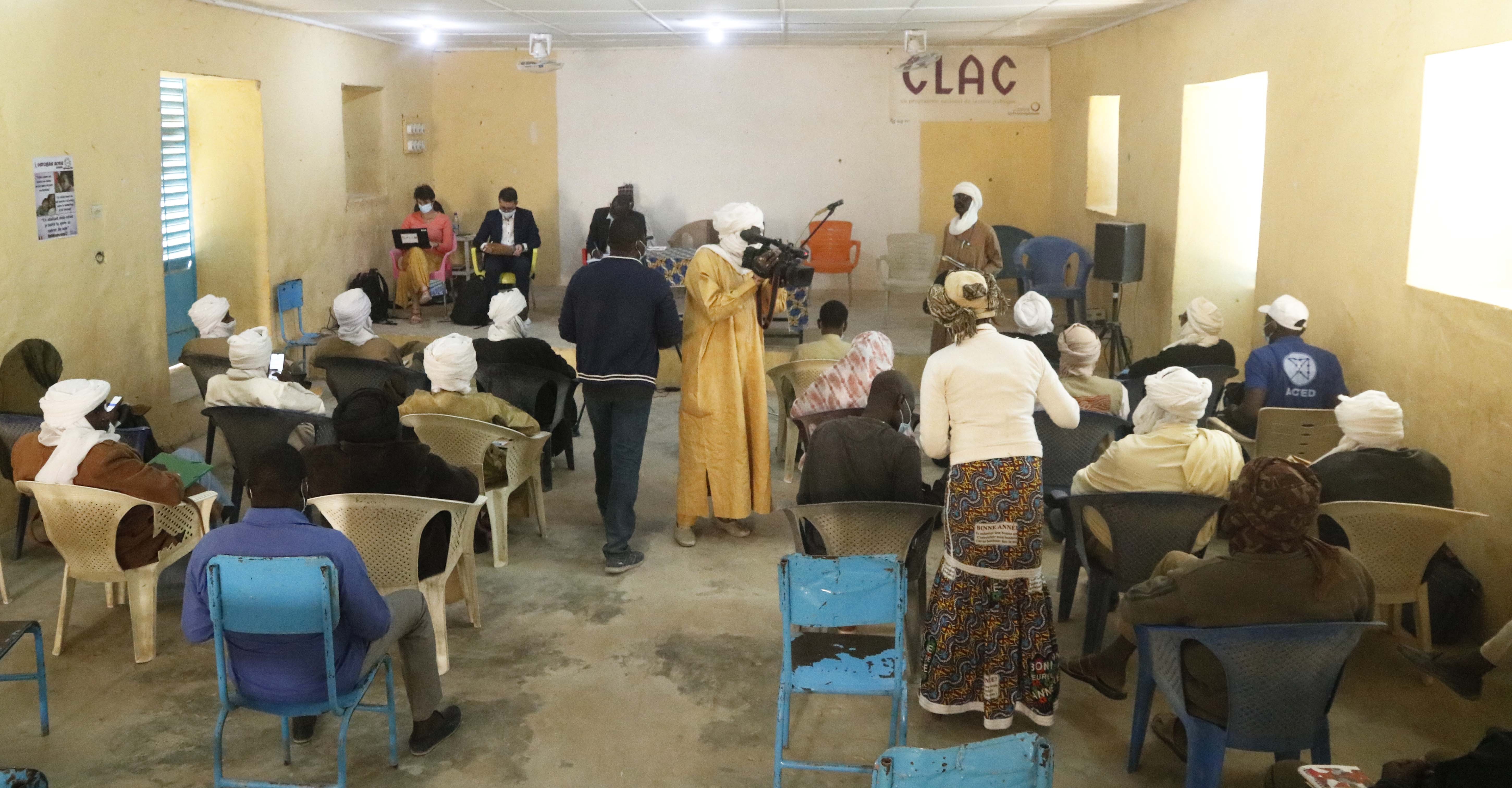Frexus Project // Three municipalities commit to future activities in the Kanem province
The Kanem province in Chad is one of the implementation areas of the Frexus project which is co-financed by the European Union and the German Federal Ministry of Economic Cooperation and Development (BMZ). To kick off project activities, a launch workshop has been held together with local stakeholders. Participants selected the three municipalities Mao, Nokou and Mondo for interventions and established a common ground for future work activities.

@ GIZ / Soulayman Bombaye
With the ever-increasing negative effects of climate change, one of the most vulnerable regions in the world is the Sahel. This region spans 11 countries, 5 climatic zones and is home to over 150 million inhabitants. Climate change in this region has strained access to natural resources and has in turn contributed to conflicts and instability.
GIZ, on behalf of the European Union and the German Federal Ministry of Economic Cooperation and Development (BMZ), has established a water-energy-food nexus project to strengthen the resilience against climate change, and to mitigate the recurring issues of tensions and conflicts, as arising from competition for and limited access to natural resources. This project, called Frexus (Improving security and climate resilience in a fragile context through the Water Energy Food Security Nexus) is to be implemented in Chad, Mali, and Niger until 2023.
Introducing the project to the Kanem stakeholders
In Chad, the province of Kanem has been identified for the implementation of the Frexus project. In order to gather technical and state partners as well as civil society, to present the project idea and obtain the support of all stakeholders, a launch workshop was organised. It took place on February 18, 2021, at the premises of the Mao Reading and Cultural Animation Center (CLAC).
The main objectives of the workshop were to:
- Present the FREXUS project (context, challenges and implementation approach) to the local Kanem partners;
- Make a proposal for of the municipalities of intervention;
- Identify focal points (local respondents) in each commune;
- Propose an operational plan for the year 2021.
The workshop was opened with a speech by the GIZ Portfolio Coordinator in Chad, Mr. Felix Kirsch. He underlined the importance of German cooperation in the field of socio-economic development in Chad and pointed out the commitment of the German government for the past 50 years in the country. Kanem is one of the provinces that has benefited from German-funded development projects that address its different challenges.

After that, the Governor of Kanem Province, Mr. Hassan Terap, officially launched the project. In his launching speech, he recalled the context and need for the Frexus project (fragile contexts including armed conflicts) and made the connection between the project’s work the Sustainable Development Goals (SDGs), which Chad has been working on for several years. Therefore, he asked the participants to be diligent and actively participate in the different presentations.

Setting the scene & selecting municipalities
Two presentations were held to illustrate the project rationale and the implementation roadmap of Frexus in Kanem. The first one was dedicated to the work context and purpose of Frexus. Emphasis was placed on the fragility of the Sahelian strip to climate change. The second one focused on the Water-Energy-Food Security (WEF) Nexus approach. This presentation emphasized the importance of energy, water and food security for local populations and the subsequent need for intersectoral cooperation.
The presentation of the project was followed by exchanges between the GIZ team and the workshop participants.
Based on different criteria as well as the recommendations of the local stakeholders, the three municipalities Mao, Nokou and Mondo were identified for further implementation.
The workshop closed with the following results:
- Fifty participants, including administrative, communal and traditional authorities, technical services, civil society and development partners actively participated in the launching workshop,
- All Frexus stakeholders were informed about the contents of the project and its implementation approach,
- The project obtained the support and commitment of local actors for its appropriation and sustainability;
- The municipalities of intervention are selected, and the focal points are identified.

Way forward
The lively interactions between the participants indicate a common ground and a shared understanding of the project. The stakeholders gave a warm reception to this project by pledging active support for future activities. In the next phase of the project, the baseline situation in the three selected communities will be assessed, with further project activities scheduled next year.
Further Reading
- Nexus Blog // Addressing complex risks - on the ROAD to sustainable resource planning in West Africa
- Nexus Blog // Combating climate change: an opportunity for conflict prevention in the Sahel
- Nexus Blog // A Nexus way forward – two projects kick-off their activities in the Niger Basin
- Nexus Blog // Can the Water, Energy and Food Nexus approach prevent conflicts in a fragile context?
